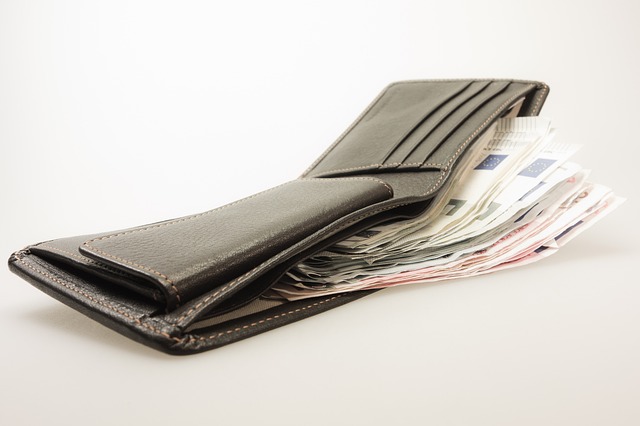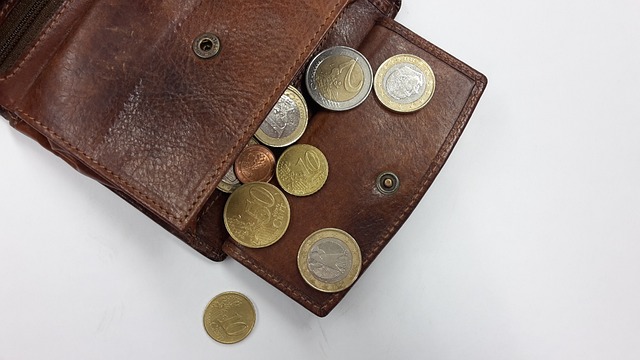The Hidden Secrets of Crypto Wallets
Author: Jameson Richman Expert
Published On: 2025-01-26
Prepared by Jameson Richman and our team of experts with over a decade of experience in cryptocurrency and digital asset analysis. Learn more about us.
In the evolving landscape of cryptocurrency, the word "wallet" may conjure images of shiny coins and digital currencies, but there is so much more beneath the surface. As the digital finance revolution takes off, understanding how to secure your crypto assets becomes essential. In this article, we'll dive deep into the hidden secrets of crypto wallets, exploring types, security measures, and the best practices to maximize your investments.

What is a Crypto Wallet?
A crypto wallet is a digital tool that allows users to store, send, and receive cryptocurrencies. Unlike a traditional wallet that holds physical currency, a crypto wallet doesn't store your coins physically. Instead, it provides a means to access your public and private keys—essentially your digital addresses on the blockchain.
Types of Crypto Wallets
Crypto wallets come in various forms, each with its own advantages and disadvantages. Understanding these types can help you choose the right one for your needs. They can generally be categorized into three main types:
1. Hardware Wallets
Hardware wallets are physical devices that securely store your private keys offline. This is considered one of the safest methods for storing cryptocurrencies. A popular choice among investors, hardware wallets like Ledger and Trezor ensure that your keys are not exposed to the internet, reducing the risk of hacking.
2. Software Wallets
Software wallets can be downloaded on your computer or mobile device. They offer the convenience of quick access to your funds, perfect for trading or day-to-day transactions. However, they are also susceptible to malware and hacking attacks, making vigilance and security measures critical.
3. Paper Wallets
Paper wallets involve physically printing your cryptocurrency keys on paper. While they are completely offline and immune to hacks, they can be easily lost or damaged. For this reason, they are best suited for those looking to 'cold store' their investments for an extended period.
Security Measures to Protect Your Assets
With the rise of cryptocurrency, the demand for security has also increased. Here are a few essential security measures to implement:
1. Use Strong Passwords
Always choose complex, unique passwords for your wallets, avoiding easily guessable information such as birthdays or simple phrases. Consider using a password manager to generate and store strong passwords.
2. Enable Two-Factor Authentication (2FA)
Two-factor authentication adds an additional layer of security by requiring not only your password but also a second form of identification, typically a text message or an authenticator app. Make this a standard practice for all your crypto accounts.
3. Keep Software Updated
Always keep your wallet software and devices updated. Software updates often include security patches that protect against newly discovered vulnerabilities.
4. Be Wary of Phishing Attacks
Phishing attacks are rampant in the crypto space. Always verify the websites and links you are using, especially if they require sensitive information. If something seems off, it usually is.

Choosing the Right Wallet for You
The right wallet depends on your specific needs and how you plan to use your cryptocurrencies. For frequent traders, a software wallet may offer the convenience needed for quick transactions. However, long-term investors should consider the security advantages of hardware wallets. Always ensure that whatever wallet you choose suits your lifestyle and risk tolerance.
Common Myths Surrounding Crypto Wallets
As with any emerging technology, there are myths and misconceptions surrounding the use of crypto wallets. Let’s debunk some common myths:
1. My Crypto is Stored in the Wallet
This is one of the biggest misconceptions about crypto wallets. Your wallet does not store your cryptocurrency; it stores your keys. The actual coins are stored on the blockchain and can be accessed through your keys.
2. All Wallets are the Same
Not all wallets provide the same level of security and support for different cryptocurrencies. It’s essential to choose a wallet that aligns with your specific needs, including the currencies you intend to hold.
3. Crypto Wallets are Not Necessary
Some may argue that crypto exchanges can serve as wallets. While this is true to an extent, it's essential to remember that leaving your assets on an exchange poses significant risks, including hacking and outages. Using a dedicated wallet provides you with more control over your assets.
Best Practices for Managing Your Crypto Wallet
To manage your crypto investments effectively, consider these best practices:
1. Diversify Your Wallets
Don't put all your eggs in one basket. Use different types of wallets for different purposes—hardware wallets for long-term holds, software wallets for daily transactions.
2. Regularly Back Up Your Wallet
Many wallet types allow you to back up your keys and settings. Make this a regular practice to ensure that you can recover your assets in case of a device failure.
3. Stay Informed About New Security Features
Security in the crypto world is always evolving. Keep yourself updated on new technologies and security features that can protect your assets better.

Exploring Wallet Integration with Exchanges
Another critical aspect of managing your crypto assets is understanding how wallets work with crypto exchanges. Many people use exchanges for buying and selling, but some fail to realize that moving your assets to a secure wallet after trading can help protect your investments better.
For those new to the crypto space, Binance is a popular exchange that offers a variety of trading options and functionalities. However, while Binance provides a wallet service, it’s wise to transfer your earned coins to a more secure wallet for long-term storage.
Future of Crypto Wallets
As cryptocurrency adoption continues to rise, wallet technologies are becoming increasingly advanced. Innovations such as multi-signature wallets, custody solutions by financial institutions, and the integration of wallets with DeFi platforms are all signs that the future of crypto wallets is ever-evolving and promising.
Final Thoughts
The hidden secrets of crypto wallets unravel numerous dimensions that can protect your investments and provide more control over your digital assets. Security must be a priority, considering the possible risks associated with the digital currency landscape. By choosing the right wallet, practicing good security measures, and staying educated, you can safeguard your cryptocurrency investments for a brighter financial future.
Remember, the key to successful crypto investing is knowledge and security. Don't skip the steps to familiarize yourself with these essential tools, as they can ultimately make a significant difference in your cryptocurrency journey.